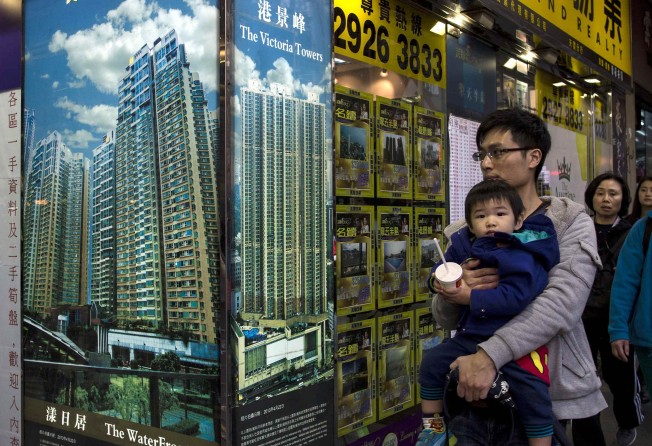The allure and pitfalls of property in Hong Kong

Yet another attempt was made this week to increase the level of home ownership in Hong Kong. It came in a proposal for selling new public housing to occupants and was made by Tung Chee-hwa’s Our Hong Kong think tank.
Despite the proposals’ provenance initial government response was lukewarm, presumably because it may not serve property developer’s interests.
However this subject is most unlikely to disappear anytime soon because the whole subject of property is a matter of obsessive interest in Hong Kong and for good reason.
Hong Kong is not alone in focusing on property matters; indeed this is the one form of investment that has even the smallest investors in every corner of the planet paying attention. The most obvious reason for this is that for most people an investment is property is likely to be the biggest investment they will ever make and, when it comes to home ownership this purchase can make a crucial difference between an individual’s financial wellbeing or otherwise.
Everyone with half a brain knows how important it is for people to purchase the home they live in. Unfortunately this is well beyond the reach of at least half of Hong Kong’s population yet home ownership remains as a widespread aspiration and has been shown to contribute to social stability and the well being of those fortunate enough to have made this purchase.
It is also possible to argue that because of the unusual mix of an investment and personal use, home ownership is in a class of its own among investment categories. Moreover once the property bug bites one thing tends to lead another and that is why property ownership can be a bit like chocolate consumption where one bite rarely suffices.
People on the property ladder or aspiring to get there are known to suspend normal considerations about the basic requirements of a good investment and dwell on all sorts of emotional and other factors that detract from the fundamental purpose of making money, which, last time I looked, was the underpinning of any investment strategy.
Thus you will find people who, for example, can’t afford to buy property in Hong Kong but think it is a great idea to buy something in a place where palm trees sway or where prices are depressed because no one else is buying. Their logic appears to be impeccable, as it will be argued, for example, that in Hong Kong HK$10 million will buy you a glorified rabbit hutch in Central whereas half that sum can buy a fabulous villa in some tropical holiday location.
There is however always a reason why prices for seemingly the same thing differ. In the case of property the reasons are numerous, ranging from taxation issues to property rights and plain old supply and demand.
The pertinent question is or should be: whether investing the sum notionally earmarked for property could produce better returns if devoted to other purposes?
That objective criterion is often abandoned as people, often of quite modest means, plunge their savings into properties that are highly unlikely to ever make money. Some of them buy in holiday locations where they rationalise that they are saving money on hotels.
Others are attracted to locations with dirt-cheap property prices. Out in these badlands property prices appear to be poised for a remarkable uptick, the logic being that what is down must come up. The cruel reality of the property market however is that dirt-cheap places often provide an investment for life because no one wants to take these properties off your hands. Meanwhile expensive property locations tend to enjoy far better long term gains although in somewhere like Hong Kong the ride can be bumpy.
Nevertheless even this market is open to true property market believers lacking the means to buy bricks and mortar as they can always purchase REITs or property company shares, which are the best proxy for investment in this market. That will not satisfy those who argue that scrip is hardly a substitute for a solid building.
If you really insist on buying something tangible there are cheaper alternatives to residential property, the sector of the market that captures the most attention. Investments in the less glamorous end of the property market occupied by parking lots, industrial and retail units are often far more affordable and generally less hassle to manage while offering highly respectable returns.
True, there may be less cache in investments of this kind but that will only worry those who confuse investment with appearance.
Big time property investors have a very different set of considerations, a lot of which revolves around how much they can screw out of smaller investors transfixed by incidentals that detract from focus on the crucial purpose of investment.
Stephen Vines runs food companies in the food sector and moonlights as a journalist and a broadcaster